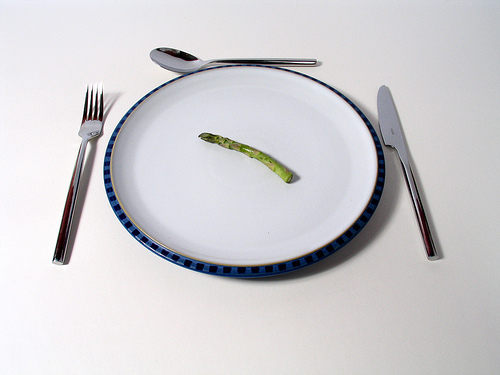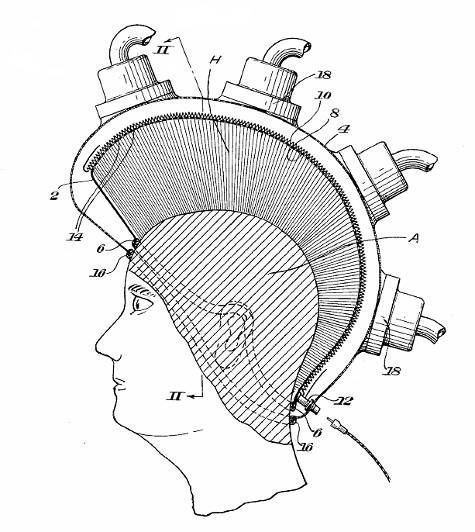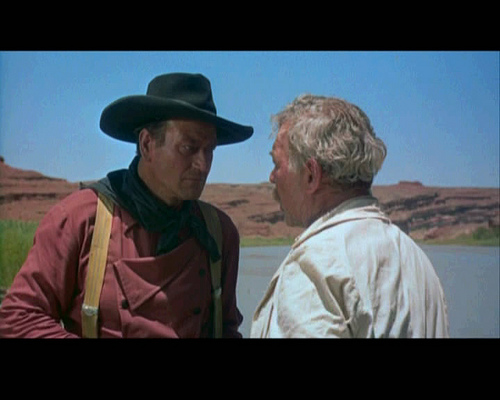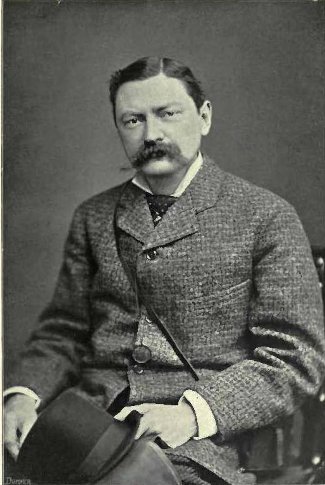
In a letter, Lewis Carroll asked his sister to analyze a little girl’s reasoning:
“I’m so glad I don’t like asparagus — because, if I did like it, I should have to eat it — and I can’t bear it!”
Carroll added: “It bothers me considerably.”

In a letter, Lewis Carroll asked his sister to analyze a little girl’s reasoning:
“I’m so glad I don’t like asparagus — because, if I did like it, I should have to eat it — and I can’t bear it!”
Carroll added: “It bothers me considerably.”
The soul, aspiring, pants its source to mount,
As streams meander level with their fount.
That’s Robert Montgomery, in “The Omnipresence of the Deity.” Thomas Macaulay writes:
We take this to be, on the whole, the worst similitude the world. In the first place, no stream meanders, or can possibly meander level with its fount. In the next place, if streams did meander level with their founts, no two motions can be less like each other than that of meandering level and that of mounting upwards.
“Those who write clearly have readers,” wrote Camus. “Those who write obscurely have commentators.”

Patented in 1951, John J. Boax’s “hair singeing apparatus” would do away with conventional haircuts: Vacuums extend the user’s hair and the hood burns it to a chosen length.
Even the guy in the drawing seems uncertain about this, but all progress requires sacrifice.
In 1892, J. McCullough, secretary of Scotland’s North Berwick Green Committee, wrote a little book called Golf in the Year 2000, in which a man falls asleep and wakes up in a technologically advanced future. It was largely overlooked at the time but was rediscovered in the millennium, when the future world arrived.
On the links McCullough largely missed the mark — he thought we’d have golf clubs that automatically kept score, driverless carts, and jackets that yelled “Fore!”
But in the wider world he accurately predicted:
McCullough had said he was simply trying to imagine “what we are coming to if things go on as they are doing.” It’s a pity he didn’t write a sequel — one wonders what he might have foreseen in our own future.
Kurt Gödel composed an ontological proof of God’s existence:
Axiom 1. A property is positive if and only if its negation is negative.
Axiom 2. A property is positive if it necessarily contains a positive property.
Theorem 1. A positive property is logically consistent (that is,
possibly it has an existence).
Definition. Something is God-like if and only if it possesses all positive properties.
Axiom 3. Being God-like is a positive property.
Axiom 4. Being a positive property is logical and hence necessary.
Definition. A property P is the essence of x if and only if x has the property P and P is necessarily minimal.
Theorem 2. If x is God-like, then being God-like is the essence of x.
Definition. x necessarily exists if it has an essential property.
Axiom 5. Being necessarily existent is God-like.
Theorem 3. Necessarily there is some x such that x is God-like.
“I am convinced of the afterlife, independent of theology,” he once wrote. “If the world is rationally constructed, there must be an afterlife.”

“I play John Wayne in every part, regardless of the character, and I’ve been doing okay, haven’t I?” — John Wayne

One bitterly cold day [Henry J.] Byron was walking along the Strand when Lionel Brough, the comedian, met him, and said, ‘Why, Byron, you never wear an overcoat.’ ‘No,’ answered the farceur, ‘no, Brough, I never was.’
— John De Morgan, In Lighter Vein, 1907
This puzzling verse, from a contributor named “Maude,” appeared in the Weekly Wisconsin of Sept. 29, 1888:
Perhaps the solvers are inclined to hiss,
Curling their nose up at a con like this.
Like some much abler posers I would try
A rare, uncommon puzzle to supply.
A curious acrostic here you see
Rough hewn and inartistic tho’ it be;
Still it is well to have it understood,
I could not make it plainer, if I would.
(In the second line, “con” means “contribution.”)
What are the concealed words?

God started tiling Tasmania, but he ran out of grout.
Either that or erosion has exaggerated some natural fractures, producing this remarkable tessellation at Eaglehawk Neck.
One or the other.
(1) If a thing can’t be done without something wrong being done, then the thing itself is wrong.
(2) If X is impossible and Y is wrong, then I can’t do both X and Y, and I can’t do X but not Y.
But if Y is wrong and doing X-but-not-Y is impossible, then by (1) it’s wrong to do X.
Hence if it’s impossible to do a thing, then it’s wrong to do it.